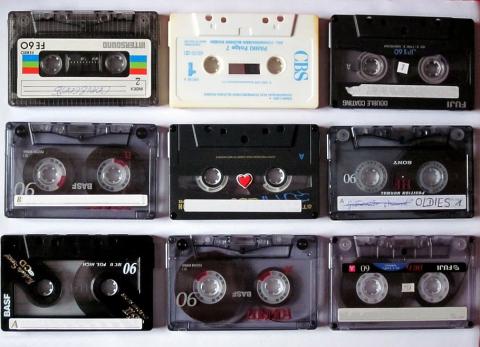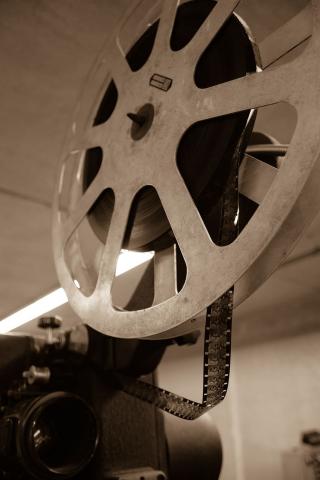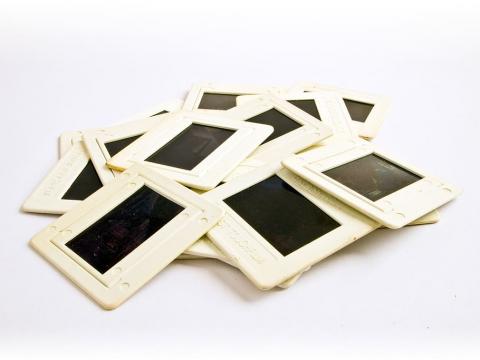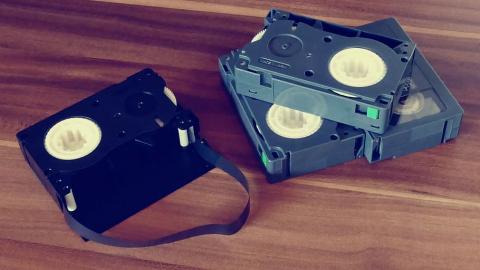CLS Digitization Services
Over the past four decades, the Center for Louisiana Studies has developed the capacity to digitize and restore a wide array of outdated and even obscure media. Due to the Center’s unique work in archival preservation, our staff can handle digitization projects that would normally have to be sent outside of Louisiana for processing. While most of the Center’s digitization efforts are focused on our own collections, we also offer economical services to the public.
From ancient family home movies to oral histories recorded on reel to reel tape, we can handle transferring almost any recording made in the last 75 years. Once digitized, files are made available via cloud formats (Google Drive and One Drive), portable or USB drive, CD, or DVD. We also work with businesses as well as non-profits, such as museums, archives, and libraries to digitize and/or restore outmoded or damaged media.
Funds from all digitization work goes towards supporting the mission of the Center for Louisiana Studies and the Archives of Cajun and Creole Folklore.
For more information, contact:
John Sharp, Assistant Director for Research (John.Sharp@louisiana.edu)
Chris Segura, Archivist (c.segura@louisiana.edu)
MEDIA FORMATS
Audio
¼ inch tape - Most track configurations - 3 ¾ ips, 7 ½ ips, 15 ips speeds
Cassette tapes
Microcassette tapes
Minicassette tapes
Records - 33, 45, 78 rpm, Recordio discs
DAT tapes
Minidiscs
Video
8, Super8, and 16 mm film
VHS tapes
U-matic Tapes (both large and small formats)
Beta and Betacam tapes
Hi8 tapes
DV and MiniDV tapes
Images
All photos printed on paper
Slide film (photographs and negatives)
Glass plate negatives
Restoration on a case by case basis. Physical examination of material is necessary before work begins. Services include:
Rewinding tangled tapes
Securing broken or torn tapes
Repairing sprocket holes or breaks in film
Mold removal from tapes or film
Repair of sticky-shed syndrome
TESTIMONIALS
“We've had the pleasure of working with the Center for Louisiana Studies on two digitization projects: 16mm basketball films from the Loyola University Athletics Collection, and DVcam/MiniDV, DAT, VHS, and Hi8 videos from the Thomas Berry Collection. In both cases, the expert staff at the Center were able to provide us with timely quotes, worked with us to stay within our budget and schedule, and delivered metadata and digital files in the formats we requested. The digitized film and video are high quality and we have received great responses from our stakeholders about them. The Center for Louisiana Studies is an ideal partner for affordable, high quality digitization, and we're thrilled to be able to work with another Louisiana cultural heritage institution on making our analog collections more accessible.”
Elizabeth Kelly
Digital Programs Coordinator
Loyola Special Collections
“Restoring, repairing, and digitizing analog media is essential to the historian’s work. I’ve used cassette tapes and VHS tapes as primary sources for just about all of my history projects. And for years I have sent boxes of old tapes—some damaged beyond repair—to the experts at the Center for Louisiana Studies. With the use of high quality digital reproduction equipment, the technicians at the Center have a proven track record for bringing these valuable historical voices and sounds back to life.”
Jason Theriot, Ph.D.
Historian
Jason P. Theriot Consulting, LLC
"Working with the staff at the Center for Louisiana Studies to preserve our aging audio and video recordings of Louisiana Creole speakers has been an enormously gratifying experience. Thanks to their diligence and expertise, over 100 hours of our fragile cassette recordings have now been digitized, ensuring that they are preserved for future generations and that they can be easily edited and placed online for public access. Recorded in the 1980s and 1990s as part of the project to create the Dictionary of Louisiana Creole (Valdman et al., 1998), these interviews, along with nearly 50 hours of interviews digitized from Beta videotapes, constitute invaluable documentation of this endangered Louisiana language as spoken by the last generation to have learned it as a first language, before English. We are very fortunate to have been able to partner with the Center for Louisiana Studies and its staff, who share our mission of preserving this important part of Louisiana’s rich cultural and linguistic heritage."
Thomas A. Klingler
Associate Professor of French and Linguistics
Tulane University
